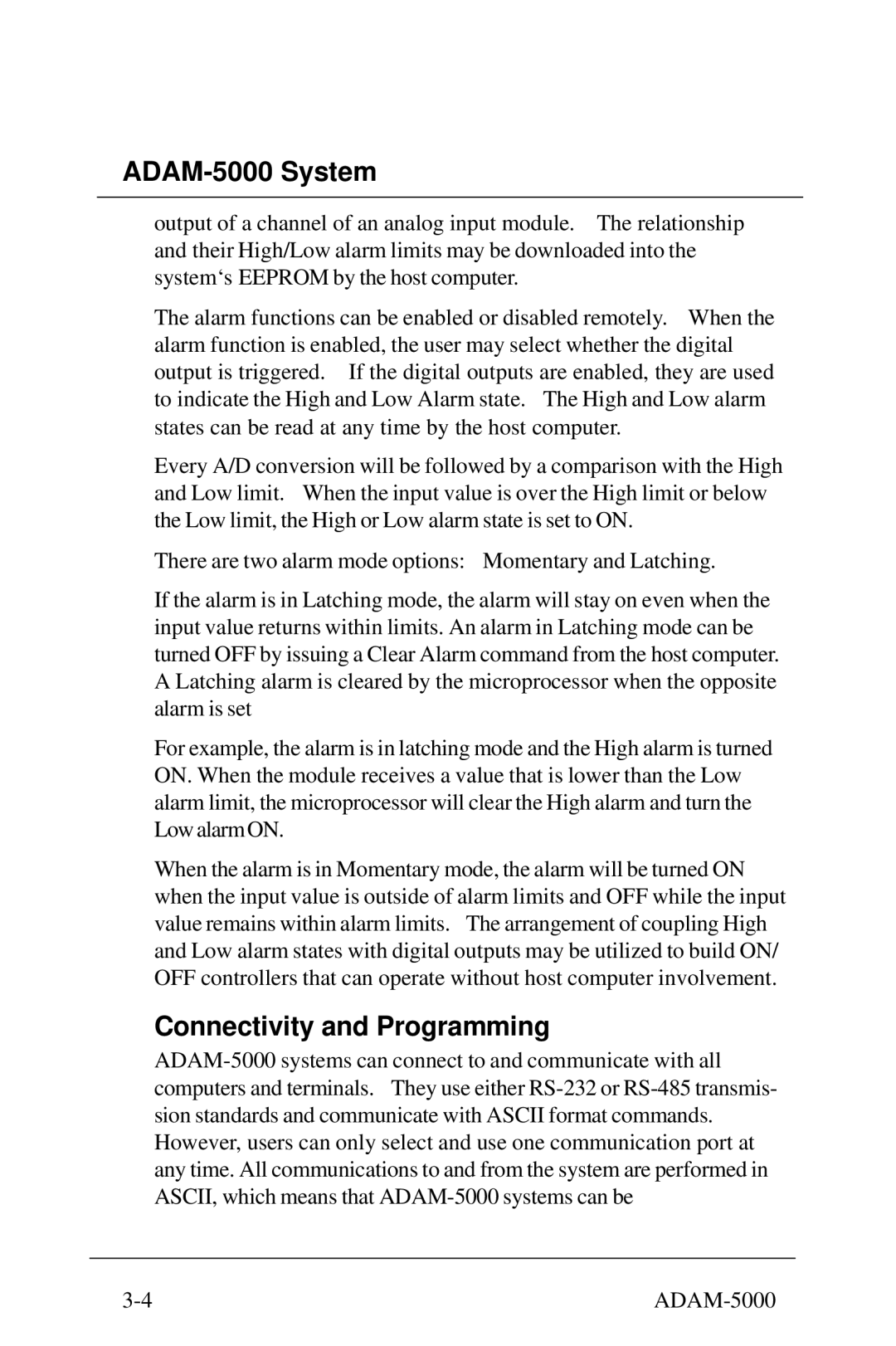
ADAM-5000 System
output of a channel of an analog input module. The relationship and their High/Low alarm limits may be downloaded into the system‘s EEPROM by the host computer.
The alarm functions can be enabled or disabled remotely. When the alarm function is enabled, the user may select whether the digital output is triggered. If the digital outputs are enabled, they are used to indicate the High and Low Alarm state. The High and Low alarm states can be read at any time by the host computer.
Every A/D conversion will be followed by a comparison with the High and Low limit. When the input value is over the High limit or below the Low limit, the High or Low alarm state is set to ON.
There are two alarm mode options: Momentary and Latching.
If the alarm is in Latching mode, the alarm will stay on even when the input value returns within limits. An alarm in Latching mode can be turned OFF by issuing a Clear Alarm command from the host computer. A Latching alarm is cleared by the microprocessor when the opposite alarm is set
For example, the alarm is in latching mode and the High alarm is turned ON. When the module receives a value that is lower than the Low alarm limit, the microprocessor will clear the High alarm and turn the Low alarm ON.
When the alarm is in Momentary mode, the alarm will be turned ON when the input value is outside of alarm limits and OFF while the input value remains within alarm limits. The arrangement of coupling High and Low alarm states with digital outputs may be utilized to build ON/ OFF controllers that can operate without host computer involvement.
